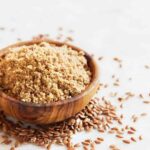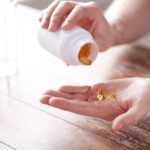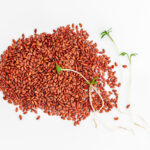Energy Drinks to “Get Through the Day”?
I have been researching energy drinks—a fairly new phenomenon, but exploding in popularity, especially among young people. The Millennials and Gen Y (actually, all young people in all generations) are generally ill-educated about health and nutrition and also unmotivated by risks. 30 years from now, they’ll be saying what we are:
“Ah, I wish I wasn’t so stupid when I was a kid.” (Indulging in excesses of junk food, sun, alcohol, filling cavities with metals, and just generally being blithe about our choices. Once my mother left an article on my pillow about skin cancer resulting from sunburns, and she said, “When you’re 40, you’re going to be sorry you did all that sunbathing!” I thought, “Who cares? When I’m 40 I’ll be OLD and I won’t care how I look!” Ah, the bitter laughter, every time I share that story with friends. Who knew that at 40, we care as much about our appearance as we did at 20? For the record, let me say: I wish I’d listened to my mom.)
I recently asked on my blog, how many of you drink a stimulant to get going in the morning, or to get through the day? The results are not necessarily representative of America, because my readers are likely healthier than most, plus they’re reporting with their name and photo, so statistically less likely to be honest.
(However, the guy who said he drinks Jagermeister to get going in the morning has been discarded rather than included in results. We did try to get a meaningful statistic.)
But the results are that 71% of 211 GSG readers responding on FB admit to anywhere from 1 to 6 caffeinated beverages daily, to deal with energy deficits. Amazing! Let’s talk about soda, and energy drinks, how they compare, and what the antidote is, how to get off them forever.
What percentage of Americans drink soda regularly?
A Gallup poll in 2012 revealed that 48 percent of Americans drink soda daily! More young adults than others—56 percent of those 18 to 34 admit to a regular soda habit.
What are the dangers of energy drinks?
Medical literature shows a limited number of cases of caffeine-associated deaths, as well as seizures from drinking energy drinks. A few reports include cardiac arrest and death in young, healthy people from drinking energy drinks.
Drinking caffeine leads to caffeine-withdrawal headaches. Even changing the amount you drink can cause frequent headaches. I always warn those doing the GSG Detox: caffeine comes out hard! Those who drink caffeinated soda and coffee almost always have headaches.
That’s toxicity leaving via the neurological system.
Australian research based on calls to their poison center shows these symptoms of people drinking energy drinks:
Heart palpitations / tachycardia, tremors / shaking, agitation / restlessness, gastrointestinal upset, chest pain, dizziness, tingling or numbing of the skin, insomnia, respiratory distress, and headache.
One of the scariest things to me about energy drinks is that 11-year olds are buying them. The marketers have made it very trendy and cool to walk around with Monster or Red Bull drinks, which have as much caffeine as 1, 2, or even 3 cups of coffee—or 4 or more colas. You can’t always tell the total effect by the milligrams of caffeine on the label, because other stimulants on the label, such as guarana and ginseng, which have a compounded effect. Plus there are 13 teaspoons of sugar in a 16-oz. can.
Worse, they are being marketed as a calorie burner and a workout enhancer. (Certainly you can work out harder if you’re flying high on a stimulant.) Athletes using energy drinks to fuel a workout can experience dehydration, due to the diuretic effect.
For reference points, a can of Coke has 34 mg of caffeine, and Mountain Dew has 55 mg. An energy drink has 75 to 200 mg per serving.
But what about kids who drink two of them in a row? (An 18-year old died during a basketball game after drinking 2 Red Bulls, reported in the Mayo Clinic Proceedings last November.)
So little is known about the long-term effects of drinking these drinks packed with sugar or chemical sweeteners, chemicals, and caffeine. Watchdog groups worry about the effect on heart health, diabetes rates, and more.
There’s a trend towards young people mixing energy drinks with alcohol, an upper and a downer, with frightening results. In fact, some companies have followed this trend, and made drinks to oblige, such as Joose, a doubly toxic whammy with both caffeine and alcohol.
Drinking caffeine with alcohol causes a person who is intoxicated to feel like they aren’t, since tiredness is one of the signs you’ve had too much to drink. Research shows those who combine caffeine and alcohol drink more and have higher blood alcohol content. The hangover is worse, since both alcohol and caffeine cause dehydration and increase toxicity. It creates a serious problem for people with an underlying heart problem–and many cardiovascular problems are undiagnosed until a cardiac event occurs. Younger and younger people are being diagnosed with cardiac issues.
What’s a better approach to low energy?
Eating nutrient dense foods is. Getting them throughout the day, the crux of every meal and snack. A green smoothie daily is a good start.
Posted in: Health Concerns, Lifestyle, Whole Food













